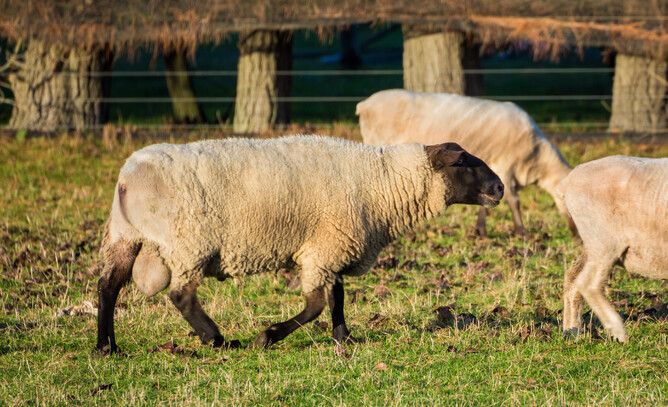With ram sales around the corner, it’s a good time to think about the health of incoming rams, and the role of the voluntary Brucella Ovis Accreditation Scheme in New Zealand’s sheep industry.
What is Brucella ovis?
Brucella ovis is an infectious bacterial disease that primarily affects the genital tract of rams. It spreads via infected semen (for example, ram-ewe-ram transmission) and can occasionally cause transient (or short-term) disease in ewes. The infection leads to epididymitis or lumps at the bottom of the testicles where mature sperm is stored, and can result in permanent infertility.
The role of accreditation
Thanks to the Brucella Ovis Accreditation Scheme, the prevalence of this disease has significantly decreased in New Zealand. Many stud farms, particularly those belonging to breed societies, take part in the voluntary programme. It involves annual ram soundness exams (palpation of the testicles to check for abnormalities) and blood testing for the B. ovis antibody.
Risk factors for infection
Brucella ovis can enter your flock through a variety of ways, including:
Purchasing or leasing rams with unknown B. ovis status (i.e. no accreditation certificate) – clearing sales can be particularly risky.
Neighbouring farms with positive or unknown B. ovis status, especially if boundary fences are poor or stray rams wander in.
Dog tucker rams.
Feral sheep in the area.
Buying winter ram lambs. Once they reach puberty, they can spread the disease.
Reducing the risks
To protect your flock:
Only purchase rams from farms that have a current B. ovis accreditation certificate.
Maintain secure boundary fences.
Ask your vet to perform ram palpations and blood tests annually, particularly on any suspicious rams.
If the B. ovis status of in-coming stock is uncertain, isolate high-risk rams on arrival from your current flock for at least 60 days and carry out further testing at the advice of your vet.
If you’d like to know more about B. ovis testing, accreditation, or general ram health, get in touch with your KeyVet.

